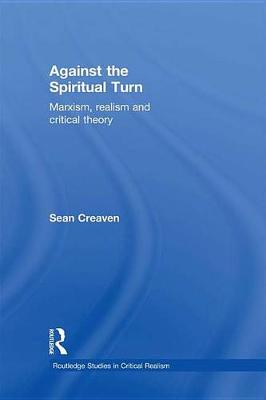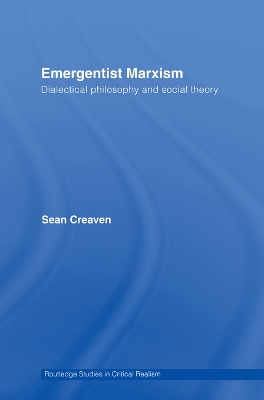Routledge Studies in Critical Realism
5 total works
The argument presented in this book is that the recent ‘spiritual’ trajectory of Roy Bhaskar’s work, upon which he first embarked with the publication of his From East to West, undermines the fundamental achievements of his earlier work. The problem with Bhaskar’s new philosophical system (Transcendental Dialectical Critical Realism or simply Meta-Reality), from the critical-realist Marxist perspective endorsed here, is that it marks both a departure from and a negation of the earlier concerns of Bhaskar to develop a realist philosophy of science and under-labour for an emancipatory materialist socio-historical science. The end-result is a meta-philosophy which is irrealist, speculative, under-theorized, internally self-contradictory, and which cannot provide philosophical guidance to liberatory social practices. In opposition to theist ontological logics more generally (including the rather more rational theism presented by Margaret Archer, Andrew Collier and Doug Porpora), the argument of this book is that the earth-bound materialist dialectics of the classical Marxist tradition, and the naturalistic humanism these dialectics under-labour on the terrain of socio-historical being, offer a much more promising way forward for critical realist theory and for liberatory politics and ethics.
In tackling emergentist Marxism in depth, this well-written volume demonstrates that critical realism and materialist dialectics are indispensable to theorizing the functioning of complex social and physical systems. Author Sean Creaven investigates Marx’s dialectics of being and consciousness, forces and relations of production, base and superstructure, class structure and class conflict, and demonstrates how they allow the social analyst to conceptualize geo-history as embodying a tendential evolutionary directionality, rather than as simply random or indeterminate in terms of its outcomes.
For those interested in social and political theory, Marxism and communism and contemporary social theory, this outstanding volume is an in important read and a valuable resource.
Against the Spiritual Turn: Marxism, Realism, and Critical Theory
by Sean Creaven
The failure of social philosophers to make sense of an object of knowledge that embodies real divisions and polarities has generated a fundamental problem of social theory: the fallacy of reductive-conflationary analytical and explanatory models in sociological research. This book seeks to define the problem of sociology as one of developing appropriate theoretical and methodological tools for describing and analysing a multi-faceted social reality.
Through an extensive critical review of the major traditions of social theory from the perspective of social realism, this book develops the argument that social theory to date has been hamstrung by its resort to conflationary-reductive analytical modes. Part I presents a realist critique of the traditional rivals of holism and individualism while Part II offers a realist critique of the major paradigms of sociological elisionism. In Part III the author builds on these critiques by exploring how the ontology of social realism can sustain a robust social theory that resolves the traditional dilemmas and antinomies.
Deploying this social realism as a tool of explanatory critique of influential sociological theories of contemporary society, such as risk, liquid modernity, reflexive modernity, and postmodernity, this book is essential reading for students and scholars of critical theory, critical realism, philosophy and sociology.


